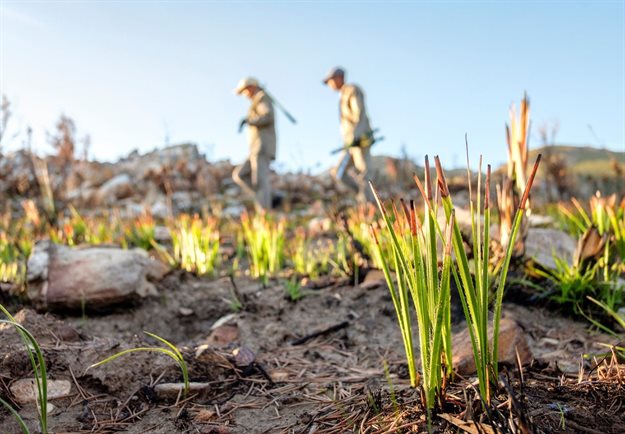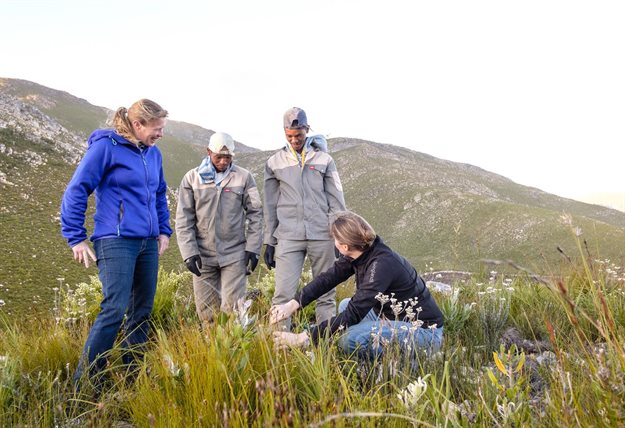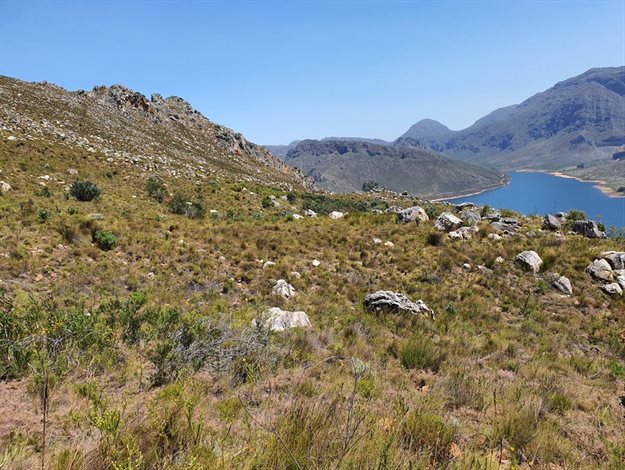Through its Replenish Africa Initiative (Rain), the Coca-Cola Foundation is supporting women-inspired partnerships in South Africa create positive impacts on the environment and livelihoods. These are partnerships led by women through all-women teams or through the training provided to women, which creates jobs, saves water and conserves biodiversity.
Rain was launched by the Coca-Cola Foundation in 2010 to provide access to safe drinking water for six million people in Africa by the end of 2020. The programme works with implementing partners to not only bring clean water to communities, but also to create valuable employment opportunities for women, youth and families by supporting a wide range of water-related projects across the continent. Here are some of stories of impact being created across South Africa.
First female wood chipping operation in Wolseley, Western Cape
Wolseley is a small town in the upper Breede River Valley region of the Western Cape province of South Africa. The Kluitjieskraal Wetland, a key feature in the Breede headwaters, is an area where large infestations of alien invasive trees and water weeds choke the channels and prevent the sufficient flow of water into the Breede River.
The Rain programme’s partnership with the World Wide Fund for Nature (WWF) is helping to clear 470 hectares of alien invasive plants. This initiative will not only release significant amounts of water into the Breede River, but also allows the wood biomass collected from the alien clearing to create valuable mulching material for local farmers growing fruit and vegetables. The mulch produced is used by farmers to conserve soil moisture and improve the fertility and water efficiency of their grounds.
Alongside alien clearing and improving water efficiency in the region, the project has offered women from the community employment and skills training related to alien clearing management which will significantly improve their future employment prospects. The project has supported the establishment of the first black, female-owned wood chipping operation in the region. This small business currently supplies mulch to large fruit farms in the Wolseley area. The business also provides permanent employment to community members that were either previously unemployed, or only had access to sporadic seasonal work on the local fruit farms.
“Wolseley has high levels of unemployment and limited opportunities, this is especially true for the women from our community,” says wood chipping SME owner Lynda Jansen. “The Rain project has given me the opportunity to own and build a sustainable business, whilst also creating much needed job opportunities for women who are often the sole breadwinners in the family.”
Water for the people: working with local communities to conserve water in the Soutpansberg
Another Rain project is underway in the Soutpansberg, located in South Africa’s northern mountain range in the Vhembe District of Limpopo. Rain’s implementing partner, the Endangered Wildlife Trust (EWT) is using the project’s investment to protect source water and engage the local community children on hygiene and water-related issues.
The Soutpansberg mountain is under threat from the spread of invasive alien trees, which has had a huge impact on water resources in the area. To counter and reduce the impact of the alien invasive trees, EWT’s woman-led team is clearing 32 hectares of invasive plants in its upper catchment areas. In addition to this, the team is working with local landowners to formally protect the upper catchment areas under the Limpopo Department of Economic Development, Environment and Tourism’s Biodiversity Stewardship Programme.
“The Soutpansberg is a very special mountain and needs to be protected for many reasons – it’s a privilege to work with such a dedicated team of people to conserve our water resources, engage children on water conservation, and to be leading a visionary group of landowners on a mission to protect our mountain catchments and water resources for generations to come,” says EWT’s Soutpansberg Protected Area Water Conservation project coordinator Catherine Vise.
Clearing alien invasive plants to refresh natural springs in Matatiele
In Matatiele, an area of the Eastern Cape with numerous socio-economic challenges, extensive alien plant invasion has drastically reduced water flow to a network of natural springs and reduced the amount of available grazing resources for cattle farmers in this remote area. This Rain project has employed predominately female staff to its alien clearing team. With women at the helm of the project’s operations, the female-led team is helping to restore and secure water resources in the Upper Umzimvubu Watershed in Matatiele.
Working within communities dependent upon natural resources for their livelihood, the project has increased job security and empowered women by providing skills training and employment opportunities with long-term benefits.
“Empowering communities, and especially women, to better manage their landscapes and natural resources beyond the lifespan of these projects is integral to their long-term sustainability and restoring healthy ecosystems,” says Environmental and Rural Solutions’ Sissie Matela, one of Matatiele’s female implementing partners.
Protecting major water source areas in the Western Cape
In the Wemmershoek dam catchment area, working with implementing partner the Nature Conservancy, a Rain project aims to clear invasive plant species to protect a major water source area for Cape Town.
In addition to addressing bulkwater security, the Greater Cape Town Water Fund Wemmershoek Rain Project focuses on employing, training, and mentoring women from local communities. Women are prioritised for employment and natural leaders are then identified and mentored to run their own clearing teams and eventually, establish their own small enterprises.
The work in Wemmershoek builds on a successful pilot project in Atlantis, where TCCF provided catalytic funding to kickstart the Greater Cape Town Water Fund. That work concluded in June 2018, providing 77,000 people with improved water security and mentored five women to develop the skillset to run their own clearing teams.
“Through Rain, women are being empowered to help save water, protect our ecological infrastructure and mentored to go on and create further employment opportunities in their communities,” says Luis Avellar, general manager of Coca-Cola’s South African franchise. “It’s a virtuous circle that has long-term benefits for communities across South Africa in an era of climate change.”

















































